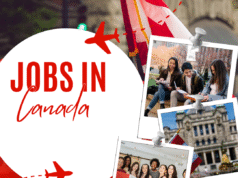Moving to Australia from Nigeria: complete relocation checklist takes you step-by-step through everything you need—from visa options and cost breakdowns to shipping, homes, financial planning, cultural adjustment, and settling in smoothly. Whether you’re moving solo, with family, or as a student, this guide ensures you’re fully equipped to start your Australian journey confidently.

1. Why Nigerians Are Choosing Australia in 2025
Career Opportunities & Quality of Life for Nigerian Migrants
Australia’s thriving sectors—IT, healthcare, engineering, and education—offer many job prospects for Nigerians seeking better quality of life and income.
Education, Climate & Lifestyle Advantages
With excellent universities, a subtropical climate, and tolerant society, Australia appeals to Nigerian families and professionals alike.
2. Visa Pathways: How to Move to Australia from Nigeria
Skilled and Work Visas Available to Nigerians
- Temporary Skill Shortage (TSS) Visa 482: Employer-sponsored, up to 4 years, leading to possible permanent residency via subclass 186.
- Skilled Independent Visa 189: Points-based permanent residency for high-demand professions, requiring 65+ points
- Temporary Graduate Visa 485: For graduates from Australia, valid 18 months–5 years depending on stream
- Training Visa 407: Short-term workplace training or development, up to 2 years
Note: Working Holiday Visas (417/462) are not available to Nigerian passport holders.
Navigating Bridging Visas for Temporary Residence
When transitioning between visas, bridging visas A-E allow legal stay in Australia while applications are processed.
Registered Migration Assistance
Use only OMARA-registered migration agents or lawyers—unregistered consultants are not legally authorized to assist with visa applications.
3. Preparing Your Visa Application from Nigeria
Must-Have Documents for Nigerian Applicants
- Valid passport
- English test results (IELTS/PTE)—within last 3 years
- Academic transcripts & employment references
- Skills assessment from relevant authority (e.g. Engineers Australia, ACS)
- Police clearance and health checks
The Expression of Interest (EOI) & Invitation Process
Submit an EOI via SkillSelect to be ranked for points; if invited, you’ll have 60 days to apply with full documentation.
Visa Fees & Document Submission
- Skilled Independent 189: From ~AUD 4,240
- TSS 482: AUD 1,330–2,770
- Subclass 500 (Student) and others vary
Submit via ImmiAccount; biometric appointments are done through VFS in Abuja or Lagos—roughly NGN 15,000.
4. Estimating Costs: How to Move to Australia from Nigeria
Breakdown of Relocation Costs for Nigerians
- Visa/Application: See above
- Flights: USD 1,500–2,500 per person roundtrip
- Shipping belongings: Thousands to tens of thousands USD depending on volume
- Accommodation bonds and rent: AUD 400–800/week in major cities
- Cost of living: AUD 4,000–6,000 per month for a family of four, excluding rent
For budgeting tips, see “Cheap Places to Travel as a Student”
5. Managing Finances Pre-Departure
Opening an Australian Bank Account Early
Set up an Australian account online ahead of arrival for easier fund transfers. Inform your Nigerian bank to avoid blocked transactions.
Monitoring Currency & Tax Considerations
Explore SWIFT/IMT transfers; consult tax experts to understand obligations in both countries.
6. What to Cancel or Prepare in Nigeria
Cancelling Services & Redirecting Mail
End utility, insurance, subscriptions, and redirect mail for at least three months.
Transport & Home Logistics
Inform landlord, sell or rent your property, store belongings, and book flights in advance. Check baggage restrictions and arrange airport transport.
7. Shipping & Customs Rules
Transferring Household Goods
Use the Transfer of Residence Concession for duty-free personal goods if owned and used for 12+ months. Prepare inventory and B534 form.
Pet Relocation and Quarantine
Ensure vaccinations, health certificates, and compliance with quarantine laws when shipping pets.
8. Accommodation & Transport Upon Arrival
Finding a Place to Stay
Start with temporary options (Airbnb, Booking.com). For rentals, use sites like realestate.com.au or Domain. Expect bond and references.
Transport Cards & Driving
Get your state’s transport card (Opal, Myki, Smartrider, etc.). Apply for an Australian driver’s licence within three months, or convert if eligible.
9. Accessing Essential Services
Healthcare & Medicare Registration
If eligible, register for Medicare, the public health system. Consider private insurance as supplementation.
Education for Your Children
For families, check schooling options: public (low-cost) or private/international schools—curriculum and location matter.
10. Settling In & Community Life
Tax File Number & Employment Setup
Apply for your Tax File Number (TFN) immediately. Build your CV to Australian format and begin job hunting in skilled sectors.
Cultural Adjustment for Nigerians
Australia values egalitarianism, punctuality, and personal space. Embrace outdoor culture, be open, and engage in local communities.
Connecting with Nigerian Communities
Join Nigerian diaspora groups on social media or in cities like Sydney, Melbourne, and Perth—they provide emotional and practical support.
11. Common Relocation Mistakes to Avoid
- Underestimating total costs (visa plus living expenses)
- Incomplete visa documentation or missing deadlines
- Skipping health or skills assessments
- Ignoring cultural and legal differences
12. FAQs About Moving to Australia from Nigeria
- Best visa for Nigerians? Skilled Independent (189) or employer-sponsored (482) mostly.
- Working Holiday Visa available? No, Nigerian passports are not eligible.
- How long before arrival to apply? Start preparation 6–12 months ahead for smoother planning.
- Cost range? Initial relocation might cost several thousand AUD/USD depending on flights, visa, shipping, and living arrangements.
Conclusion
When planning moving to Australia from Nigeria: complete relocation checklist, start by choosing the right visa pathway, gathering essential documents, estimating costs, and preparing in advance. Moving your things, opening bank accounts, and finding a place to live are all important steps. Getting used to Medicare and adjusting to the culture are also key for a smooth transition. With thorough planning and realistic expectations, your relocation journey can be successful, compliant, and fulfilling.







